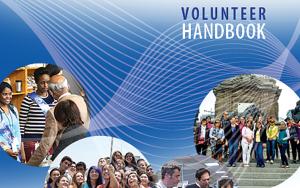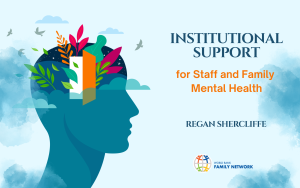Moving to Washington DC with the World Bank Group? Whether you are planning your move to DC, have just arrived or have been in the US for years, here is some important practical information to help guide you through the relocation process as a WBG spouse/partner. For detailed information, read our Welcoming Handbook, attend our information seminars and welcoming events posted on our Activities page. Join our WBF Buddy Whatsapp group for Newcomers to DC for practical information, tips and support in real time, anytime. Send an email to wbfnwelcoming@worldbank.org
Support—Headquarters—Estate Planning
You and your spouse/partner own property and may have accumulated substantial assets. What will happen to these assets after you die? What would happen to your children if both you and your spouse/partner were to die while they were young? Who would oversee the distribution of your assets to the various people to whom you might leave them? These kinds of issues are dealt with through estate planning. Many people put off estate planning because they prefer not to think about death, but estate planning is very important. Proper planning, known in the US as estate planning, can save you thousands of dollars.
Estate planning can be complicated, but it is absolutely necessary to avoid losing control of your assets and to ensure the appointment of a suitable guardian for your minor children. Please begin by attending one of WBFN's many Information Seminars on Estate Planning and Taxation, US Tax Planning and many more, please visit the Information Seminars page by clicking here. Since these issue are complex and everchanging it's best to come to one of our sessions that are given by people in the industry and Tax professionals.
Review the following sections to discover more about how to secure your future.
Over the years WBFN members have discovered that the information compiled in this book is very valuable for WBG spouses and families. WBFN is committed to periodically updating this publication to ensure it remains a relevant resource for our members.
When you and your spouse/partner develop a plan for dealing with life emergencies caused by unexpected events or end-of-life situations many practical issues can be resolved or simplified. Planning can make a difference!
This Guide is intended to assist you and your family as you think about these issues. It is organized in three sections providing
(1) an overview of items that help organize the advance planning process;
(2) a description of the estate planning process; and
(3) a few suggested actions that you need to take during the difficult time following the loss of your spouse/partner.
You are strongly advised to get professional help in planning your estate. Check with your friends and colleagues for attorneys they have used in planning their estates and wills. Every person over 18 who owns property or has children should have a will - a legal document that indicates what will become of the person's property after he or she dies. Everyone living in the US, including foreign nationals, should have a US will; foreign nationals should also have wills drawn up in their country of origin. Standard forms, while inexpensive, are not designed to deal with G-4 situations. Because of the complicated tax laws and other regulations governing the handling of estates of non-US citizens, wills drafted by knowledgeable attorneys are particularly important for WBG families.
A will provides instructions on such matters as guardianship of young children, continuation of care to elderly relatives, and the distribution of property. It also identifies an executor - a person responsible for seeing that the instructions given in the will are followed. Following a person's death, the executor takes control of the assets of the estate, provides for the payment of debts and taxes, and distributes the remaining assets to the beneficiaries. If assets are left in trust (that is, put aside until minor children reach a certain age), trustees who will manage the assets of the trust must also be named. If you have a close friend who would be capable of serving as executor and trustee, you should consider naming them to manage your estate after you die. This is to be preferred over paying a bank or financial institution to serve as trustee. For wills and trusts in the US, at least one executor must be a US citizen and resident of the state where the will is registered, or must hire a citizen to be the registered agent of the executor. The rules governing wills and their execution are complex; therefore it is imperative to consult an attorney specializing in last wills and testaments.
A person who dies without a will is said to die intestate. If you die intestate your estate will be distributed by a court. The court may rule that all of your property be sold, with half the proceeds going to your spouse and the remaining half divided equally among your children. Elderly relatives or other dependents for whom you would have liked to provide may not be provided for. Estate taxes may also be significantly higher than they would have been, had you died with a properly prepared will. If you leave no instructions on the care of your minor children, a court will appoint a guardian.
US law treats US citizens and non-citizens differently when it comes to taxing estates, making it very important that you let the lawyer preparing your will know of your G-4 visa status. If both spouses are US citizens, one spouse can leave an unlimited amount of property to the other spouse without incurring federal estate or gift taxes. The unlimited marital deduction does not apply if the surviving spouse is not a US citizen. Permanent residents who elect to become US citizens can apply for the unlimited marital deduction as long as they apply for citizenship within nine months of the spouse's death.
Under the Technical and Miscellaneous Revenue Act of 1989 (TAMRA), the worldwide assets of a non-US citizen employed in the US at the time of death may be subject to US estate taxes if the US government determines that the deceased had not intended to leave the US after retirement.
Before you visit a lawyer to have a will prepared, you and your spouse should discuss several important issues:
- Whom do you want to appoint as executor of your will? (A US will requires that a US citizen serve as one of the executors.) It is wise to appoint a backup executor in case the first appointee is unable to serve.
- Whom do you want to appoint as guardian of your minor children? (Choose a backup here as well.)
- If your estate is to be held in trust for your children until they are older, at what age do you want them to receive the proceeds? Whom do you want to appoint as trustee? If you have no children, how do you want to distribute your estate? Do you need to provide for elderly parents or others?
- Are there special arrangements you want to make, such as leaving money to an educational or charitable institution?
What you should know about your spouse/partner's will:
- Location of the will
- Name and address of executor
- Name and address of your lawyer
People with moderate to large estates often put much of their property in revocable living trusts. Under this kind of arrangement, the owner of the asset receives the income from the asset during his or her lifetime. On the death of the owner, the property is held in trust for the beneficiaries. The main advantage of a living trust over a will is that probate (the process of determining that a person's will represents their true last will and testament) is avoided. A living trust needs to be established by a lawyer, who can tell you whether such a method is right for you.
In the US, minor children whose parents suddenly become incapacitated or deceased will automatically be taken to foster homes. It is imperative that you have documents stating what should happen to your children in these cases.
The use of artificial life support systems frightens many people, who fear that their lives may be pointlessly prolonged by artificial means. To reduce the chance that medical decisions will be made that are not consistent with their values, many people write down their wishes while they are still healthy, using two legal documents, the Living Will and the Durable Power of Attorney for health care. A Living Will authorizes a doctor or hospital to withhold or withdraw treatment when there is no hope of recovery. A Durable Power of Attorney for health care gives an agent chosen by you the power to make health care decisions for you if you are unable to make those decisions yourself.
What you should know about your spouse/partner's Living Will and Durable Power of Attorney:
- Location of the document
- Contents of the document
The document, which is used only if you become unable to express your own wishes, gives the person you select the power to legally request that your health care providers withhold or withdraw any health care, treatment, service, or diagnostic procedure. Usually, a spouse is chosen as the agent, but another family member or a friend could be chosen.
Both a Living will and a Durable Power of Attorney for health care can be changed at any time. Neither document requires an attorney, although both should be witnessed and notarized. The requirements for a Living Will vary from state to state. For information specific to your particular jurisdiction, you may wish to consult the following websites:
- Maryland Residents: www.oag.state.md.us/HealthPol/index.htm
- Virginia residents : http://www.vsb.org/site/publications/health-care-decision-making-what-you-need-to-know/
- Washington DC residents: www.dcha.org/Publications/ADVANCEDIRECTIVE.pdf
Certain legal forms can also be obtained through www.lawdepot.com or may be purchased at any Staples or Office Depot store. Such forms can also be completed with a lawyer. WBFN offers seminars on Estate Planning and other important seminars regularly throughout the year.






